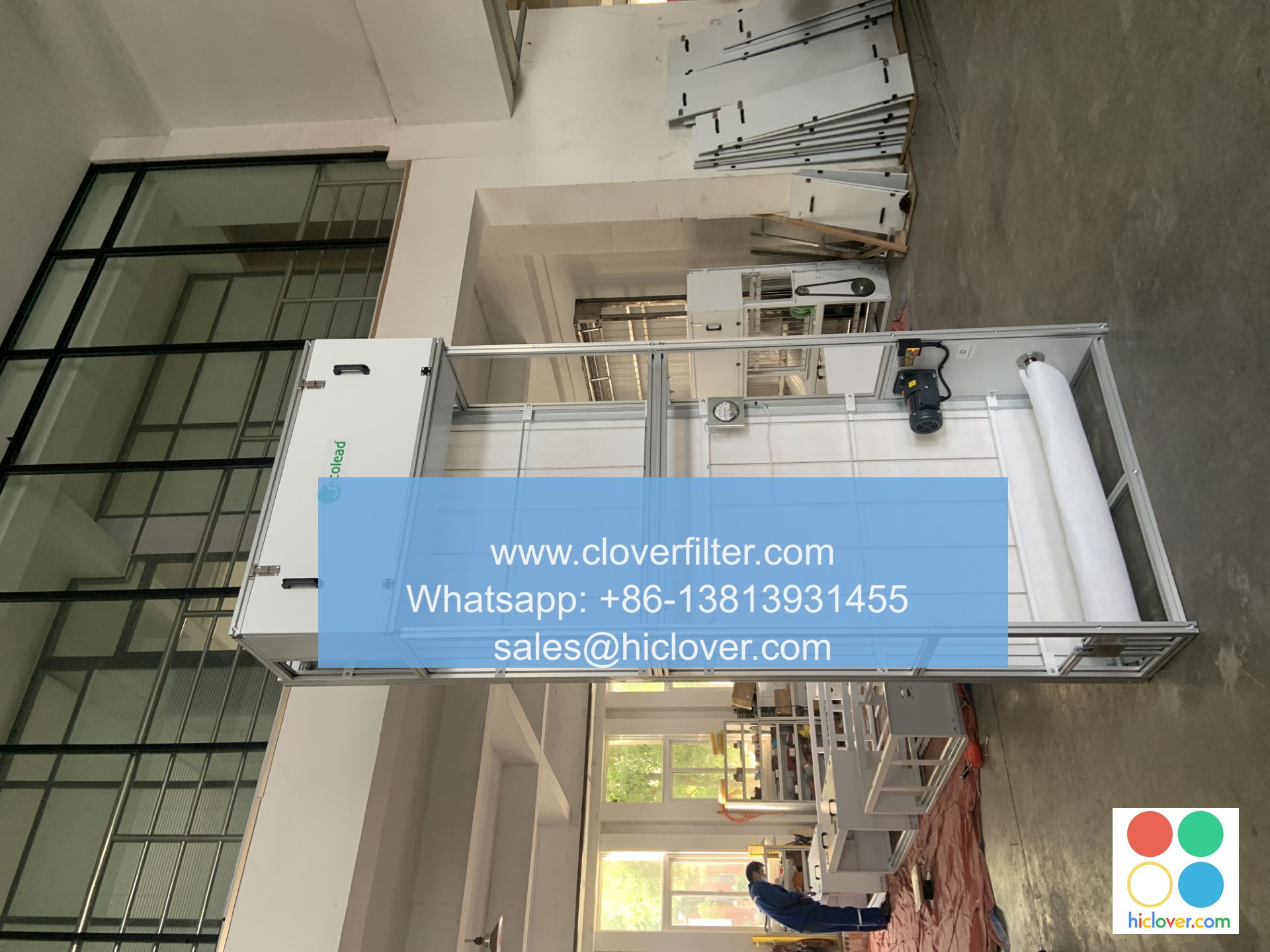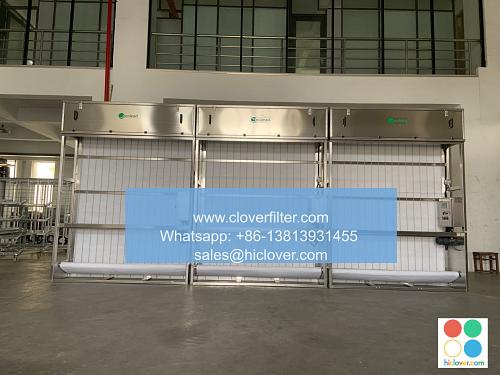Automatic Roll Air Filters: The Key to Reducing Emissions on Newfoundland Oil Platforms

The offshore oil and gas industry is a significant contributor to the economy of Newfoundland, but it also poses environmental concerns due to the emissions released from the platforms. One of the key areas of focus for reducing emissions is the use of air filters on these platforms. Traditional air filters can be inefficient and require frequent replacement, leading to increased maintenance costs and emissions. However, a new technology has emerged that is changing the game: automatic roll air filters. In this article, we will explore the benefits of automatic roll air filters and how they can help reduce emissions on Newfoundland oil platforms.
Traditional air filters used on oil platforms are typically cartridge-based and require manual replacement every 1-3 months. This process is not only time-consuming but also generates waste and requires significant maintenance costs. Moreover, these filters often become clogged with particulate matter, reducing their efficiency and increasing the pressure drop across the filter. This can lead to increased energy consumption and emissions from the platform. Automatic roll air filters, on the other hand, use a continuous roll of filter media that is automatically advanced as it becomes dirty. This design provides several benefits, including increased efficiency, reduced maintenance costs, and minimized waste generation.
One of the primary advantages of automatic roll air filters is their ability to capture particulate matter with high efficiency. These filters can capture particles as small as 0.3 microns, including dust, pollen, and other airborne contaminants. This is particularly important on oil platforms, where the air is often filled with particulate matter from drilling and production operations. By capturing these particles, automatic roll air filters can help reduce the emissions of particulate matter into the atmosphere, minimizing the impact on the environment and human health.
Another significant benefit of automatic roll air filters is their ability to reduce maintenance costs. With traditional cartridge-based filters, maintenance personnel must manually replace the filters every 1-3 months, which can be a time-consuming and labor-intensive process. Automatic roll air filters, on the other hand, can operate for up to 12 months without requiring replacement. This reduces the need for frequent filter changes, minimizing maintenance costs and the risk of human error. Additionally, the automatic roll design eliminates the need for filter storage and disposal, reducing waste generation and the environmental impact of the platform.
The use of automatic roll air filters can also help reduce energy consumption on oil platforms. Traditional filters often become clogged with particulate matter, increasing the pressure drop across the filter and requiring more energy to push air through the system. Automatic roll air filters, on the other hand, maintain a consistent pressure drop, reducing the energy required to operate the system. This can lead to significant energy savings, minimizing the platform’s carbon footprint and reducing greenhouse gas emissions.
In addition to the environmental benefits, automatic roll air filters can also improve the safety and reliability of oil platforms. By capturing particulate matter and reducing the risk of filter clogging, these filters can help prevent equipment failure and downtime. This is particularly important on offshore platforms, where equipment failure can have significant economic and environmental consequences. Moreover, the use of automatic roll air filters can help reduce the risk of fires and explosions, as they are designed to capture sparks and embers that can ignite in the presence of combustible materials.
In conclusion, automatic roll air filters are a game-changer for the offshore oil and gas industry, particularly on Newfoundland oil platforms. Their high efficiency, reduced maintenance costs, and minimized waste generation make them an attractive alternative to traditional cartridge-based filters. By capturing particulate matter, reducing energy consumption, and improving safety and reliability, automatic roll air filters can help reduce emissions and minimize the environmental impact of oil platforms. As the industry continues to evolve and prioritize environmental sustainability, the adoption of automatic roll air filters is likely to become increasingly widespread.
Frequently Asked Questions
Q: What is an automatic roll air filter?
A: An automatic roll air filter is a type of air filter that uses a continuous roll of filter media that is automatically advanced as it becomes dirty.
Q: How do automatic roll air filters reduce emissions?
A: Automatic roll air filters reduce emissions by capturing particulate matter with high efficiency, reducing energy consumption, and minimizing waste generation.
Q: What are the benefits of using automatic roll air filters on oil platforms?
A: The benefits of using automatic roll air filters on oil platforms include increased efficiency, reduced maintenance costs, minimized waste generation, and improved safety and reliability.
Q: How often do automatic roll air filters need to be replaced?
A: Automatic roll air filters can operate for up to 12 months without requiring replacement, depending on the application and operating conditions.
Q: Are automatic roll air filters more expensive than traditional cartridge-based filters?
A: While the initial cost of automatic roll air filters may be higher than traditional cartridge-based filters, their longer lifespan and reduced maintenance costs can make them a more cost-effective option in the long run.

